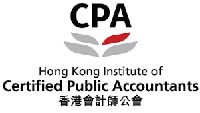Congratulations to PEI Infrastructure Investor magazine on their latest Hong Kong summit on 15 – 16 November, with the addition this year of a renewable energy forum.
Andrew returned to the panel on “Technology, disruption and its future impact on infrastructure investing” alongside Atkins’ Catherine Li, McKinsey’s Asina de Branche and MacQuarie’s Jonathan Walbridge with Traverse Group’s Vishnu Amble moderating.
Technology will improve asset performance and reduce costs via, for example, closer inspection and monitoring leading to more timely and targeted maintenance; greater environmental care; and more efficient construction schedules. Investors will be expected to sign up to more aggressive cash flow forecasts on the assumption that the technology works.
Whole new asset classes are emerging such as energy storage whose revenues will come not from selling power necessarily as from managing perhaps half a dozen contracts to supply various services, more akin to an energy trader than to a comfortable long term PPA. The revenue line of established asset classes will also be less certain. In, say, 15 years’ time, will a road see much more traffic as autonomous vehicles move along it more efficiently? Or will people need to travel less, peak use smoothed by Artificial Intelligence revolutionsing telecommuting with avatars stepping in for people Still in their Pyjamas In their Bedroom (SPIBs)?
Sponsors will change too. This greater volatility will be borne by those who control the data (“the new oil”) and by those willing to take on this greater risk. That risk may well be more on the upside than on the downside – look at how mobile phones have changed our lives. Who would have predicted 15 years ago that today in east Africa, innovation in banking by phone would lead the World or that it would take Myanmar a mere four years to reach a mobile phone density rate in excess of 100%?
Investors often like to think of infrastructure as i) long term ii) inflation linked iii) with low volatility so iv) all rather reassuringly dull. Right on the first two, very wrong on the last two.








